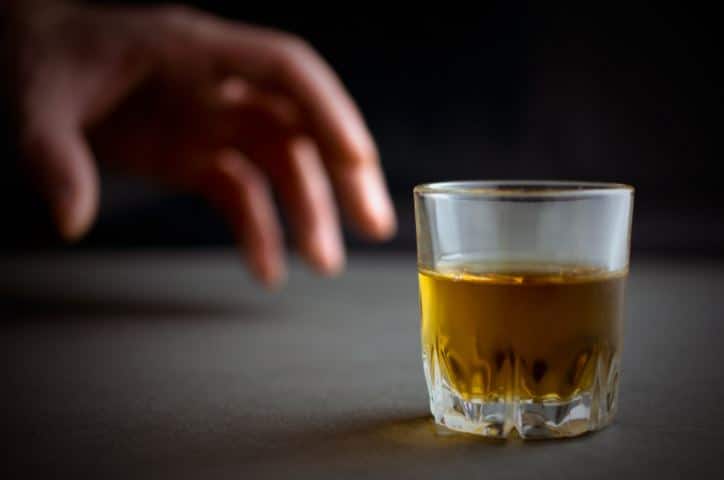Did you know that more than 18 months into the COVID-19 outbreak in the U.S., nearly 1 in 5 Americans is consuming an unhealthy amount of alcohol? As people buy more alcohol and drink more frequently, it’s easy to wonder when the line is crossed from harmless fun to a drinking problem.
If you’re concerned about how much you’ve been drinking, this is the guide for you. We’ll look at the ten signs you developed a drinking problem during the pandemic and how alcohol treatment centers in San Diego can help you get sober.
Ready to learn more? Let’s get started.
1. Drinking in Secrecy
Enjoying a drink with friends or family on occasion is common and no cause for concern. Once you start lying about the number of drinks you’ve had, pouring extra when no one is looking, or drinking before any social activity, you’ve started to hide how much you’re consuming. Drinking in secrecy is a big sign that your behavior is becoming a problem, but you don’t want to be exposed.
Keeping your drinking a secret means that you don’t want to admit to others or yourself that you’re abusing alcohol. If you start catching yourself feeling ashamed about your drinking habits and drinking behind closed doors, you might want to start looking for San Diego Rehab Centers.
2. Emotional Coping Mechanism
Feeling depressed, stressed, or anxious happens to everybody. For some, it comes and goes depending on the situation, but others turn toward substances. If you’re using alcohol to deal with difficult emotions, you may have a drinking problem.
Emotional drinking can quickly become psychologically unhealthy. If you started drinking as a means of self-medicating, it’s time to reach out for help.
3. Drinking Excessively, More Often
Were you only drinking for special occasions or on the weekends? Do you find yourself drinking during the week now? If your drinking pattern has changed, consider it a red flag.
Drinking excessively and more often than you previously did or feeling like you can’t go a long period of time without drinking is a sign of alcohol addiction.
4. Frequent Blackouts
Alcohol-related blackouts are gaps in a person’s memory for events that happened while they were intoxicated. If you find yourself losing consciousness when you drink or forgetting what you did the night before, you’ll want to consider San Diego alcohol rehabilitation.
Even occasional blackouts are a telltale sign that you’re developing a chemical dependency on alcohol.
5. Struggling With Relationships
A drinking problem doesn’t only affect the person struggling, but it also affects their relationships. Exessive alcohol use can negatively impact the people around you. Maybe your partner is feeling neglected or lonely; you aren’t spending as much time with your children, or your performance at work is getting worse.
If you’re regularly intoxicated or hungover, it’s difficult to be the best version of yourself to the people around you. Take note if someone you care about hinted that your drinking is causing problems.
6. Increased Alcohol Tolerance
Increased alcohol tolerance is tricky because it makes you think that you don’t have a drinking problem if you don’t feel buzzed when you drink. Having to drink more alcohol to feel the same cognitive and physical effects is a result of tolerance-building, which means your body is adjusting to the constant presence of alcohol.
7. Getting in Trouble With the Law
This might be a no-brainer, but alcohol abuse isn’t only harmful to your physical and mental health; it can also lead you to get in trouble with the law. Alcohol increases the risk of violence, sexual assault, DUIs, and physical injuries.
If your past behavior with drinking involved a criminal conviction of any kind, this is a sure-fire sign that you have gone overboard with drinking.
Although the pandemic has kept people at home, alcohol abuse and domestic violence have increased, which shows that legal consequences are possible even if you don’t leave your home.
8. Mental Health Dwindling
There’s no doubt that the pandemic has had negative effects on people’s mental health. Many turned to substance abuse as a method of coping with the additional stress of the last few years.
While increased alcohol use may help alleviate symptoms of depression or anxiety at first, over time, they can actually make your mental health worse. Symptoms like mood swings, anxiety, depression, and irritability are all signs of a growing alcohol addiction.
9. Experiencing Withdrawal
If you’ve taken a break after a period of heavy drinking and notice negative physical symptoms, you might be experiencing withdrawal. Some of these symptoms include insomnia, rapid heartbeat, vomiting, tremors, sweating, and headaches. You may also experience difficulty concentrating, symptoms of depression, fatigue, and more severe symptoms such as hallucinations or fever.
Not only should you seek medical treatment if you notice these symptoms, but you can avoid a painful withdrawal experience by getting sober at one of the many rehab centers in San Diego.
10. More Activities That Involve Alcohol
If you started neglecting activities you enjoyed and now need to involve alcohol in everything you do, this is a sign of a drinking problem.
Alcoholics spend a lot of time engaged in alcohol-related activities and ignore everything else that matters to them. They will also make excuses and deflect away from taking responsibility, assuming nobody understands them.
Alcohol Treatment Centers in San Diego
More than 6 percent of adults in the U.S. have an alcohol use disorder. The surge of frequent drinking may start innocently enough, but it can spiral. If you suspect that you developed a drinking problem, you can confirm with certain signs.
Knowing how to get sober isn’t complicated. Once you’ve acknowledged the problem, you can get the help you need and get your life back to normal.
Looking for one of the best alcohol treatment centers in San Diego? Look no further than Apex Recovery. Click here to get the help you need today.

